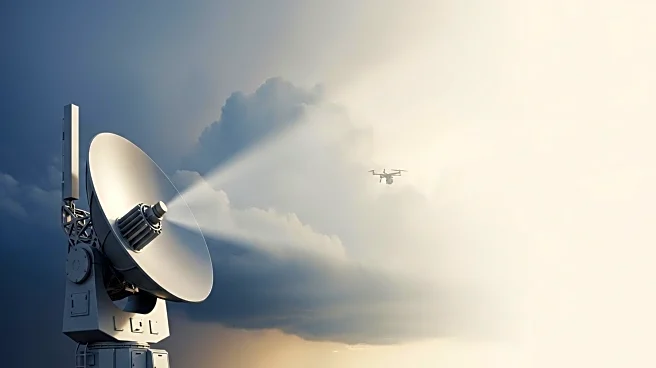What's Happening?
NATO is facing a new strategic challenge on its eastern front after Poland successfully intercepted Russian drones. This development has raised concerns among NATO allies regarding Russia's long-range strike capabilities. The incident underscores the ongoing tensions between NATO and Russia, particularly in Eastern Europe, where countries are increasingly vigilant about potential threats. Poland's decisive action in downing the drones has prompted discussions within NATO about the appropriate response to such incursions and the need for enhanced defense measures.
Why It's Important?
The interception of Russian drones by Poland is significant as it highlights the growing threat of Russian military capabilities in Eastern Europe. This situation could lead to increased military spending and strategic adjustments by NATO members to bolster their defenses. The incident may also influence NATO's policy decisions and military strategies, potentially leading to a more unified and robust stance against Russian aggression. Countries along NATO's eastern flank, such as Poland, Lithuania, and Estonia, may seek additional support and resources to counteract these threats, impacting regional security dynamics.
What's Next?
NATO is likely to convene discussions among its members to address the implications of Russia's drone incursions and to formulate a coordinated response. This may include enhancing surveillance and defense systems along the eastern front and increasing military presence in vulnerable areas. Poland's actions could serve as a catalyst for other NATO countries to reassess their defense strategies and collaborate more closely on security measures. The alliance may also explore diplomatic channels to mitigate tensions with Russia while reinforcing its commitment to protecting member states.
Beyond the Headlines
The incident involving Russian drones and Poland's response may have broader implications for international relations and security policies. It could lead to a reevaluation of NATO's strategic priorities and influence global perceptions of Russia's military intentions. Additionally, the situation may prompt discussions on the ethical and legal aspects of drone warfare and the need for international regulations governing their use. The evolving security landscape in Eastern Europe could also impact economic and political alliances, as countries seek to balance defense needs with diplomatic engagement.










